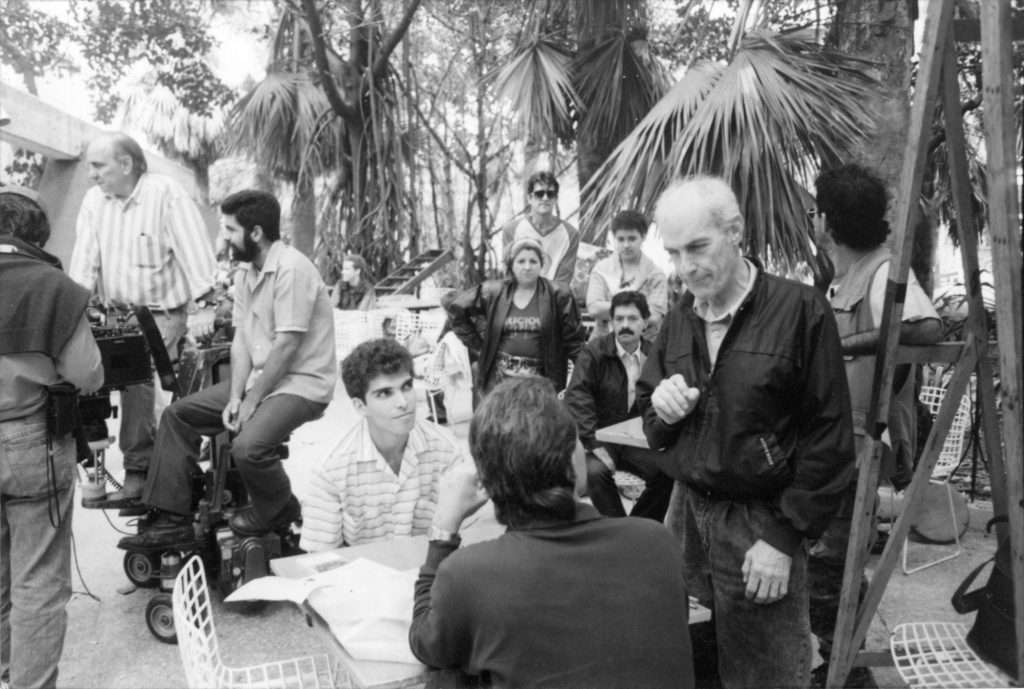The Titón and Mirtha Cultural Centers, of Havana, the provincial film in Guantanamo and the Baracoa conservative office summoned the “Titón from diverse looks” colloquium, scheduled for March 23 and 25 in the easternmost of the provinces Cubans in order to return to the creative galaxy of the filmmaker Tomás Gutiérrez Alea (1928-1996).
The event, which will celebrate the thirty anniversary of the feature film Guantanamerathe last of the films led by Titón, together with his pair and collaborator Juan Carlos Tabío, will be organized through scientific and cultural activities among which theoretical spaces will highlight as presentations and conferences taught by scholars of the work of the director of Memories of underdevelopment.
Those interested will have until March 10 to send their proposals, which must include title and description of the work together with the author’s data. The proposals will be received by the phone 5363510893 or the mail [email protected]
The works must respond to the colloquium lines: Tomás Gutiérrez Alea and Julio García Espinosa: Brotherhood in action and in thought. The Mégano: repercussion and influence on the Cuban film industry. The films that did film: Critical Tour of Tomás Gutiérrez Alea. Titon: Contribution to national cinematographic culture. Tomás Gutiérrez’s cinema’s contribution alees culture, society and history.
The Organizing Committee will be chaired by actress Mirtha Ibarra, director of the Casa Titón y Mirtha Cultural Center, and wife of the filmmaker from 1988 until his death in 1996.
The cultural event commemorates the 70 years of the short documentary The Méganothe 30 years of release the film Guantanamera and the 40 years of published the book The films that I did not filmby the Latin American film professor Silvia Oroz. Likewise, the Cuban Institute of Cuban Art and Industry and the 145th Anniversary of the City of Guantanamo is celebrated.
TGA, a silhouette
Tomás Gutiérrez Alea, known as Titón, a nickname attributed to his friend and also a filmmaker Julio García Espinosa, was born on December 11, 1928 in Havana and died of cancer in the same city on April 16, 1996.
Recognized as one of the most influential and exciting film directors of Cuba and Latin America, Gutiérrez Alea began his film career in 1948 filming humorous shorts.
He studied law at the University of Havana and then moved to Rome to study film direction at the Sperimentale Di Cinematography, where luminaires such as Michelangelo Antonioni and Giuseppe de Santis were formed, and where he met another of his students who would later be his Friend, the Colombian Gabriel García Márquez.
The Italian experience allowed Titón to connect with Italian Neorealism, which influenced his film style. In 1959 the documentary premiered This land of ours and the film Revolution stories, He marked the beginning of his career in the context of the Cuban revolution, which he always defended from critical and questioning positions, as was his cinema.
Among his most emblematic films are Memories of underdevelopment (1968), considered a classic of national cinema and classified among the hundred best films of the twentieth century.
Likewise, in its production they appear, among others, The death of a bureaucrat (1966), The Last Supper (1976), The Survivors (1979), Strawberry and chocolate (1993), co-directed with Juan Carlos Tabío and first Cuban film nominated for an Óscar, in addition to winner of a Goya, and Guantanamera (1995), which raised a wave of controversies at the government level.
https://www.youtube.com/watch?v=0SMCFDURPJG
Friend of directors such as the Spanish Carlos Saura and the American Sidney Pollack, Gutiérrez Alea, also fond of painting and music, confessed that he intervened with his cinema what he believed “that is wrong in socialism.”
“Someone told me, and I fully agree, that the script of socialism is excellent, but that the staging leaves much to be desired, and therefore must be critical. It is the best way to contribute to your improvement, ”the artist told The Cuba Gazette in 1993.
For the critic and researcher Juan Antonio García Borrero, the cinema of Gutiérrez Alea spoke of a utopia, he dreamed of seeing the utopia “and also had time to admit that a utopia will never go from articulating, in a very precarious way and always provisionally , what Chantal Mouffe calls “the conflicting consensus.”
His style combined fiction with documentary elements, creating a disruptive narrative in some cases, but always critical and full of modernity. Throughout his career, he received numerous awards and awards for his contribution to the cinema, including the Felix Varela order.
In 2020 the house of Titón and Mirtha was inaugurated, a space dedicated to the research and promotion of Cuban cinema in tribute to its legacy.

















